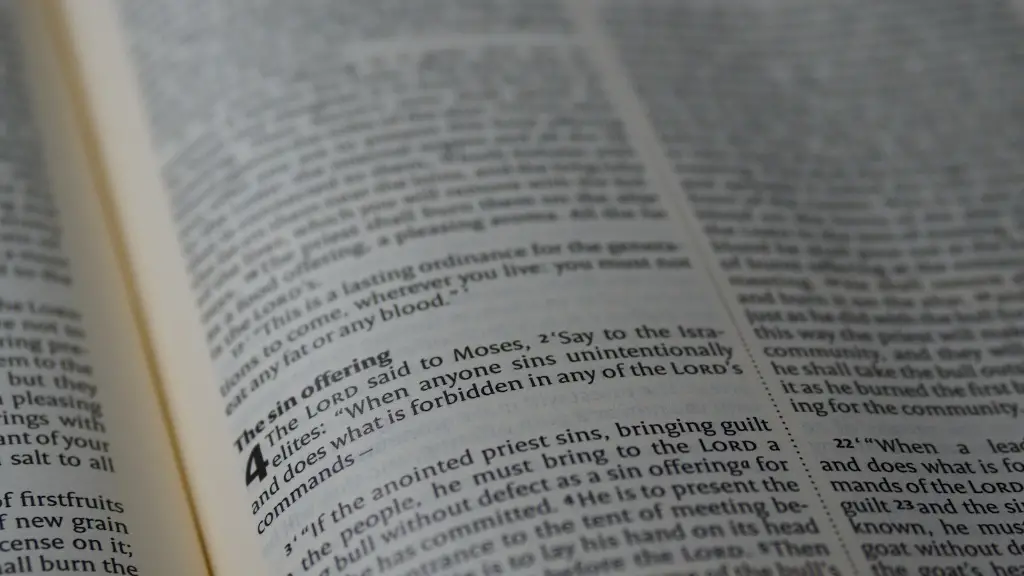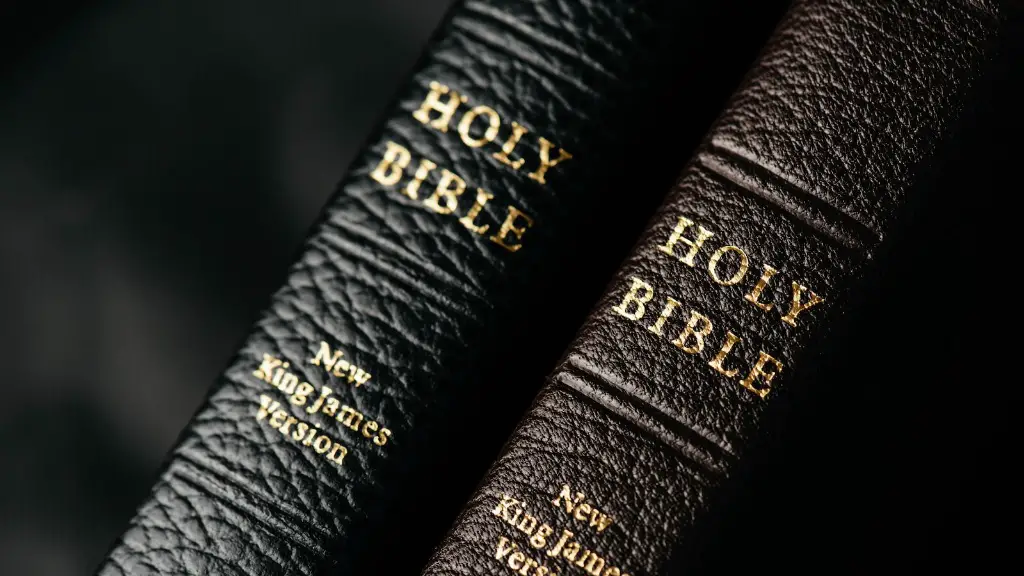Does The Bible Talk About Purgatory?
The concept of purgatory has been a debated subject for centuries. Does the Bible, the source many Christians seek guidance and direction from, address this topic or not? Some believe it does, citing various passages to support their opinion. Others disagree, viewing purgatory as an unbiblical idea incompatible with the teachings of the Bible.
The Catholic Church has identified specific verses in the Bible as evidence of purgatory, saying they support the notion of a “place of purification” after death, but this interpretation is not universally accepted. Catholics believe the ultimate judgment of souls will occur in purgatory, allowing the process of purification and forgiveness to happen before entering into heaven.
The idea of purgatory is based on the theological premise that our sins can’t be fully “erased” through confessing and repenting into eternal life. Specialists in Bible exegesis have gone back and forth on whether this practice is scriptural or not. As with any religious subject, scripture passages can be cited and interpreted to rationalize either position.
Theologian Scott Hahn is known for his work on the Catholic perspective of purgatory and has written extensively on the subject. Hahn believes that purgatory is a logical deduction based on the various references to purification of the soul, expiation of sins and divine justice throughout the Bible. He cites 1 Corinthians 3:15, specifically, as evidence that our works as believers will be tested and mistakes will cost us something – even after we’ve become saved.
Other theologians, however, don’t believe the Bible speaks to purgatory in the same way. They point instead to the teachings of Jesus on salvation and the sins forgiven by Him. Supporters of this view cite passages such as Hebrews 4:16, which speaks of God’s mercy and forgiveness, as evidence that believers won’t necessarily be subjected to a period of purification after death.
So where does this leave us? Does the Bible talk about purgatory? The debate rages on, and it’s likely to continue for years to come. What’s certain is that the concept of purgatory isn’t explicitly stated in the Bible, so those who don’t accept it will continue to point to scripture to refute the idea.
Outlook of Other Religions
The concept of purgatory is not unique to Christianity and is found in various traditions and religions. In the Hindu tradition, for instance, there is a concept of Naraka, a place or state of punishment or suffering after death, much like the afterlife punishment meted out in Christian tradition. Hinduism and Buddhism both believe in reincarnation, which means that when someone dies, their spirit passes into a new body and is subject to the consequences of their actions in the previous life.
In the Islamic worldview, purgatory is known as Al-barzakh, the spiritual “barrier” between the physical world and the spiritual realm. Islam teaches that those who die and haven’t rid themselves of their sins must pass through this spiritual realm before entering paradise. The length of time one has to spend in Al-barzakh depends on the severity of their own sins, and even on how close they were to Allah during their life.
Like Christianity, other religions also view purgatory as a place of ultimate “judgment” and divine justice, but its purpose and how it works aren’t explained in detail. The main emphasize is more of a spiritual one, with the purpose being to purify the soul before entering the afterlife.
The Benefits of Purgatory
From a religious point of view, the concept of purgatory can be seen as beneficial for a couple of reasons. Firstly, it offers an afterlife solution for those who have committed sins, and it gives them an opportunity to “make up” for those sins in order to enter paradise and be reunited with their loved ones in peace. Secondly, it allows for God’s mercy and justice to be balanced, since He is both merciful and just.
Those who believe in purgatory also believe that Jesus Christ is the only way to salvation. They claim that salvation can only be obtained through repentance, faith and obedience to God’s will, and that a Christian can be saved only by accepting Jesus Christ as their Lord and Savior and trusting in Him alone.
Therefore, it can be said that the concept of purgatory, in whatever form it takes, can be useful as a reminder to believers to stay on the right path and avoid sinning. It can also be helpful for Christians to remain focused on the true path of righteousness and strive to be faithful to God until the day of their final judgment.
Contrast with Heaven
Purgatory can be seen as a place of cleansing and judgment, where the “bad” deeds done on Earth are considered before one is allowed to pass on to the afterlife. The primary contrast between purgatory and heaven is in the level of punishment endured. Whereas purgatory is seen as a place of punishment and cleansing, heaven is seen as a place of eternal bliss.
In the Christian faith, purgatory can also be seen as a “waiting room” or a “refinery” on the way to paradise, where sins are paid for and forgiven. It’s a place where the soul is tested, but it is not a place of eternal damnation. On the contrary, it’s a place of hope, redemption and eternal rest.
Purgatory is not a place of punishment or a vale of tears, but a place of cleansing and healing. It’s a place of mercy and forgiveness, where those who died in faith can finally find the peace that eluded them on this side of eternity.
Personal Insights
Personal discernments on this topic vary. I believe that purgatory is scriptural, pointing to references in the Bible to support my view. I understand that believing in purgatory does not necessarily mean that we have to accept the Catholic Church’s particular version of it. This interpretation is only one interpretation of the Bible, and there are others who believe that purgatory is one of many possible interpretations. It is up to us as individuals to decide what we believe.
With this in mind, I believe that the concept of purgatory can be beneficial and can offer a kind of hope to people in the midst of fear and uncertainty. It can help us remember that death is not the ultimate destination, but rather a temporary resting place where our sins can be paid for and forgiven. It can also serve as a reminder to us that while we’re alive, we should strive to live our lives in ways that honor God and bring Him glory.
Purpose of Purgatory
At its core, purgatory is about God’s justice, mercy, and unconditional love. It’s a place where the soul can be purified and made ready for entry into the heavenly kingdom. On Earth we face consequences for our actions, and similarly in the afterlife, souls that have committed certain sins must pay the price. The purpose of purgatory is to provide that opportunity.
For Christians, the concept of purgatory gives the assurance that God will judge each soul individually and justly. It is a place of hope for those who have committed wrongs and need to be forgiven, and it offers assurance that God is a loving, just, and patient being.
The idea of purgatory can also be comforting in the sense that it serves as a reminder that death is not the end, but just a transitional state of being. It can also be seen as a half way point between this life and the afterlife, a place where the soul can be cleansed and made ready for entry into the heavenly kingdom.
Objections to the Idea
Objections to the idea of purgatory vigorously criticize its supposed scriptural basis. Some Christian thinkers offer alternative interpretations of the verses used to support the concept, while others reject the idea of purgatory altogether as a foreign concept added to Christianity.
Protestant denominations in particular are opposed to the notion of purgatory, as they believe that Jesus offered eternal life to whosoever would believe in Him and that no one should have to wait to enter eternity. To them, purgatory undermines the importance of salvation through Jesus and His cleansing blood, trivializing the importance of faith-based salvation.
Ultimately, the idea of purgatory is only one interpretation of what happens to a believer after death. It is up to each individual to accept or reject the notion based on their own personal convictions and beliefs. No matter what one ultimately believes, the important thing is to recognize the importance of faith in the afterlife, and to live our lives in the way that God desires.




